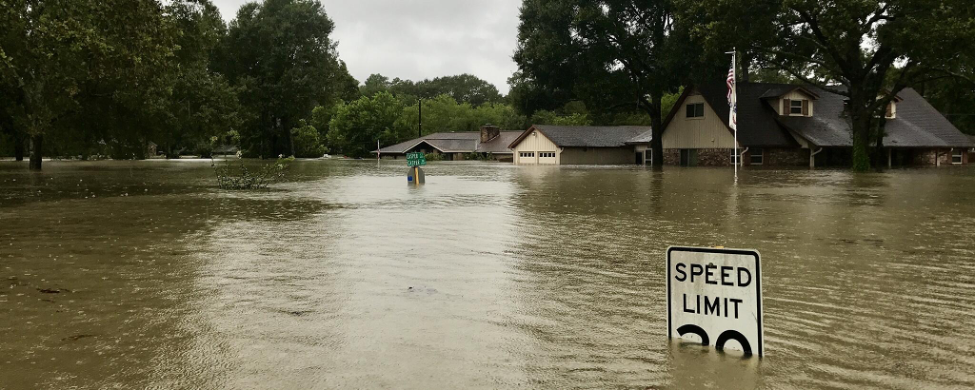Water Utility Climate Alliance

Photo attributed to McGhiever. Incorporated here under the Creative Commons Attribution 3.0 Unported license. No endorsement by licensor implied.
Posted by
Kirsten FeifelProject Summary
The Water Utility Climate Alliance (WUCA) is a coalition formed in 2007 to help water utilities prepare for and respond to the impacts of climate change and protect water supplies. Members are located throughout the United States from southern California to New York City. WUCA develops resources to support climate-informed decision-making by water utilities and serves as a learning network for members to exchange lessons learned.
Background
Climate change is expected to impact the hydrological cycle, affecting water supply, delivery, use, and quality. In response, water resource managers are trying to prepare and adapt systems and processes to climate change. In the past, water resource managers relied upon historical water data to plan the following year’s water distribution. However, due to climate change, the past will no longer be a good indication of the future. To help prepare for the impacts of climate change, a coalition was created to exchange ideas and to organize efforts to address future issues in water resources management.
Implementation
In January 2007, the San Francisco Public Utilities Commission hosted the first Water Utility Climate Change Summit in San Francisco, California. The symposium was attended by over 200 water and wastewater utility representatives from government, private sector, and environmental groups. The purpose of the symposium was to help participants better understand the impacts of climate change on water resources and related issues. WUCA was formed after the symposium and members of the WUCA include the Central Arizona Project, Austin Water, Denver Water, Metropolitan Water District of Southern California, New York City Department of Environmental Protection, Philadelphia Water Department, Portland Water Bureau, San Diego County Water Authority, San Francisco Public Utilities Commission, Seattle Public Utilities, Southern Nevada Water Authority, and Tampa Bay Water. Key climate change factors of concern for members include:
- Drought: Austin Water, Central Arizona Project, Denver Water, New York City Department of Environmental Protection, San Diego County Water Authority, San Francisco Public Utilities Commission, Southern Nevada Water Authority
- Heat: Austin Water, Central Arizona Project, Denver Water, Philadelphia Water Department, Tampa Bay Water
- Flooding: Austin Water, Tampa Bay Water
- Sea level rise: Metropolitan Water District of Southern California, New York City Department of Environmental Protection, Philadelphia Water Department, San Francisco Public Utilities Commission, Seattle Public Utilities, Tampa Bay Water
- Extreme weather events/changes in precipitation: Central Arizona Project, New York City Department of Environmental Protection, Philadelphia Water Department, Portland Water Bureau, Seattle Public Utilities
- Loss of snowpack: Denver Water, Metropolitan Water District of Southern California, Portland Water Bureau, San Francisco Public Utilities Commission, Seattle Public Utilities
- Wildfire: Denver Water
One of the major issues facing water utilities is their ability to project changes within their watershed and then develop techniques to adjust to changes due to climate change. WUCA partnered with the climate science community to develop downscaled climate models that are able to more accurately predict changes in the hydrological cycle at the sub-basin scale. WUCA worked with leaders from the Regional Integrated Sciences and Assessments (RISA) program and other scientists on the 2010–2014 Piloting Utility Modeling Applications for Climate Change (PUMA) project. PUMA’s objectives were to:
- Identify climate modeling tools and techniques for selected WUCA members that are prepared to conduct impact assessments for their systems;
- Identify how to use downscaled climate data in planning; and
- Acquire climate data that can be used by WUCA members in impacts assessments, water planning, and decision making.
WUCA utilities that engaged in the PUMA project included Tampa Bay Water, Seattle Public Utilities, New York City Department of Environmental Protection, and the Portland Water Bureau. Each utility partnered with local scientific experts; these included Tampa (Southeast Climate Consortium), Seattle (Pacific Northwest Climate Impacts Research Consortium), New York (City University of New York Institute for Sustainable Cities, Columbia University, the NASA Goddard Institute for Space Studies, Cornell University, and the Consortium for Climate Risk in the Urban Northeast), and Portland (Pacific Northwest Climate Impacts Research Consortium). Common findings across all four case studies were that the utilities needed to customize climate models to make them relevant to each city’s specific situation.
Outcomes and Conclusions
WUCA has also undertaken several efforts to create resources to support utility decision making. For example, two papers—Options for Improving Climate Modeling to Assist Water Utility Planning for Climate Change and Decision Support Planning Methods: Incorporating Climate Change Uncertainties into Water Planning—were produced to support utilities identify, evaluate, and understand climate science and decision support tools that can advance adaptation action. In addition, WUCA developed a suite of case studies in 2019 exploring how water resources professionals are integrating climate change into the design and delivery of services. These case studies span different geographies and climate impacts of concern, including sea level rise (Miami, San Francisco, New York City), extreme rainfall (Seattle, Colorado, Copenhagen), heat (Dallas/Fort Worth), and drought (Southern Nevada). Near-term priorities include developing and implementing climate resilience training and creating A Field Guide to Sea Level Rise Adaptation for the Water Sector: Moving Beyond the Risk Assessment to Implementation.
Resources:
Actionable Science in Practice: Co-producing Climate Change Information for Water Utility Vulnerability Assessments - The Final Report of the Piloting Utility Modeling Applications (PUMA) Project
Co-producing Actionable Science for Water Utilities
Water Utility Climate Alliance 2017–2021 Strategic Plan
Citation
Feifel, K. & Gregg, R. M. (2020). Water Utility Climate Alliance [Case study on a project of the Water Utility Climate Alliance]. Version 2.0. Product of EcoAdapt’s State of Adaptation Program. (Last updated July 2020)












